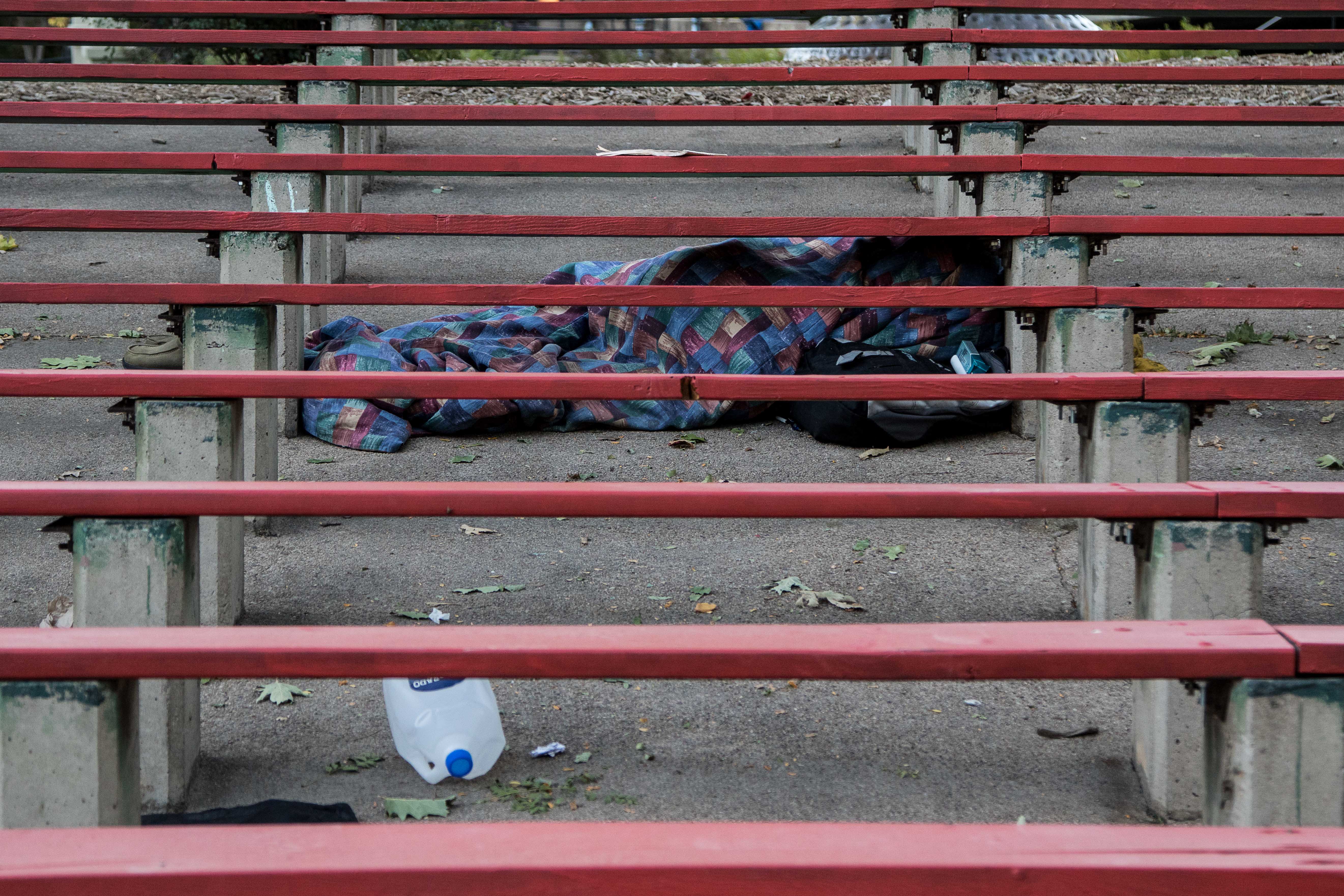
A homeless person sleeps under the benches in Boulder’s Central Park. (Jackson Barnett/CU Independent file)
As cases of the novel coronavirus exceed 900 in Colorado with 49 in Boulder as of Tuesday, local leaders have a simple message for people: stay home. But for those without a home, the fear of getting sick and not knowing where to go presents a new challenge for Boulder County.
All persons staying in shelters across Boulder and Longmont will be screened daily for symptoms.
According to Boulder Housing and Human Services Director Kurt Firnhaber, county leaders are already adapting previous homelessness initiatives to meet unhoused individuals’ needs amidst the global pandemic.
The Homeless Solutions for Boulder County service is adjusting its entry screenings—the first step for individuals to gain county assistance—and will conduct phone call interviews for applicants until further notice. Lower need individuals who would before have been moved to short-term shelters, which included the Bridge House in Boulder and OUR Center and HOPE in Longmont, will now be moved to the Boulder Shelter in North Boulder.
Higher-need individuals, who before were moved to the Boulder Shelter for the Homeless, will also go to the shelter in North Boulder which has a capacity of 160 people. This shelter will receive regular cleaning according to Firnhaber.
On Friday, the county also opened a COVID-19 Recovery Center (CRC) in East Boulder for unhoused individuals experiencing virus symptoms, which has an estimated capacity of 55 people. Those who appear to show symptoms and who will require further testing will be transported from other homeless shelters to the CRC, where individuals can be isolated for up to 14 days. According to City Manager Tanya Ange at last week’s emergency City Council meeting, the center has multiple divided spaces to help with isolation.
“The intent of the CRC is to replicate the experience that an individual would have if diagnosed positive for COVID-19 and directed to rest at home in isolation,” a county statement reads. “CRC is not a medical facility but a recovery facility to assist people through this illness.”
“This is not COVID-19 tests, but screenings to identify clients who may need to self-quarantine. At the CRC, staff and Medical Corps will be on-site daily to provide supportive check-ins,” said Alice Kim of Homeless Solutions Boulder County. “If symptoms worsen for clients at the CRC, they will be transported to the hospital for further care.”
The CRC is not meant to act as a medical facility but instead where people can be assisted through the illness.
“It essentially creates a third location for homeless individuals to go if they are symptomatic,” Firnhaber said at the emergency City Council Meeting last week.
Firnhaber said the county is also looking at plans to create a 24-hour transportation service that will take people to the CRC.
Some of the challenges the county is having in implementing this have to do with personal protection equipment, Firnhaber said, which is specialized infection gear for medical personnel’s safety. This includes masks and goggles to protect against airborne bacteria.
While the staff at the North Boulder shelter and 30th Street location have been trained to inform people about the virus and its symptoms, they do not have plans to inform those who are not actively living in facilities. This includes camps and any persons who live outdoors, which is not legal under Boulder Open Space laws.
Boulder County does talk to individuals who camp within city limits to try and get them into a facility.
Contact CU Independent Senior News Editor Tory Lysik at tory.lysik@colorado.edu.
